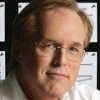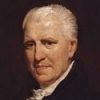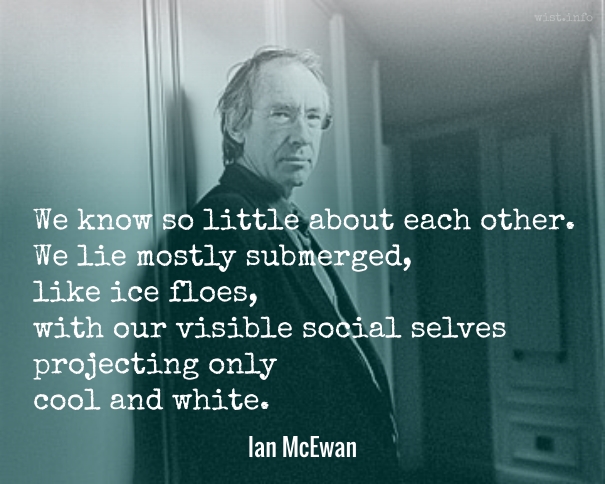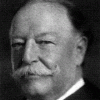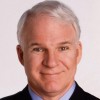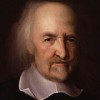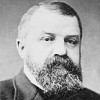A man of self-respect is one who still believes that nobody suspects him.
H. L. Mencken (1880-1956) American writer and journalist [Henry Lewis Mencken]
A Little Book in C Major, ch. 4, § 30 (1916)
(Source)
Variants:
SELF-RESPECT. The secure feeling that no one, as yet, is suspicious.
A Book of Burlesques, "The Jazz Webster" (1924)
Self-Respect -- The secure feeling that no one, as yet, is suspicious.
Chrestomathy, ch. 30 "Sententiae" (1949)
Quotations about:
secret
Note not all quotations have been tagged, so Search may find additional quotes on this topic.
None are so fond of secrets as those who do not mean to keep them; such persons covet secrets as a spendthrift covets money, for the purpose of circulation.
Charles Caleb "C. C." Colton (1780-1832) English cleric, writer, aphorist
Lacon: Or, Many Things in Few Words, Vol. 1, § 40 (1820)
(Source)
Were a historian like Tacitus to write a history of the best of our kings, giving an exact account of all the tyrannical acts and abuses of authority, the majority of which lie buried in the profoundest obscurity, there would be few reigns which would not inspire us with the same horror as that of Tiberius.
[Si un historien, tel que Tacite, eût écrit l’histoire de nos meilleurs rois, en faisant un relevé exact de tous les actes tyranniques, de tous les abus d’autorité, dont la plupart sont ensevelis dans l’obscurité la plus profonde, il y a peu de règnes qui ne nous inspirassent la même horreur que celui de Tibère.]
Nicolas Chamfort (1741-1794) French writer, epigrammist (b. Nicolas-Sébastien Roch)
Products of Perfected Civilization [Produits de la Civilisation Perfectionée], Part 1 “Maxims and Thoughts [Maximes et Pensées],” ch. 8, ¶ 482 (1795) [tr. Hutchinson (1902)]
(Source)
(Source (French)). Alternate translations:
If such an historian as Tacitus had written the chronicle of our nobler kings, making an exact statement of all those tyrannical actions and abuses of authority which are now for the most part buried in deep darkness, few of their reigns would inspire less horror than that of Tiberius.
[tr. Mathers (1926)]
If a historian such as Tacitus had written the histories of our best kings, with precise accounts of their tyrannical actions, and all their abuses of authority, most of which have been buried in the deepest obscurity, there are few reigns that would not arouse in us the same horror as that of Tiberius.
[tr. Merwin (1969)]
If a chronicler such as Tacitus had written the history of our best kings, preparing an exact amount of all tyrannical acts, of all the abuses of authority, of which the majority are concealed by fathomless obscurity, there would be few reigns which would [not?] inspire us with the same horror as that of Tiberius.
[tr. Pearson (1973)]
If I believed that my reply were made
To one who ever in the world could dwell,
This flame without all motion would have stayed.
But since there never from this deep of Hell
Turned back again one soul, if truth I hear,
Fearless of infamy my tale I tell.S’i’ credesse che mia risposta fosse
a persona che mai tornasse al mondo,
questa fiamma staria sanza più scosse;
ma però che già mai di questo fondo
non tornò vivo alcun, s’i’ odo il vero,
sanza tema d’infamia ti rispondo.Dante Alighieri (1265-1321) Italian poet
The Divine Comedy [Divina Commedia], Book 1 “Inferno,” Canto 27, l. 61ff (27.61-66) [Montefeltro] (1309) [tr. Minchin (1885)]
(Source)
These two stanzas (in Italian) were used by T. S. Eliot as the epigraph for his poem, "The Love Song of J. Alfred Prufrock" (1915).
(Source (Italian)). Alternate translations:
If I beliv'd
That my reply were to a person made
Who ever should return into the world,
My Flame should without any motion rest.
But, since none ever from this Gulph alive
Return again, if what I've heard be true;
I'll answer without fear of infamy.
[tr. Rogers (1782), l. 57ff]
Thy rig'rous language found a vent
Firm as the rod of fate secures my fame,
As hence no tell-tale goes to spread my shame,
Else were thy rash untimely pray'r deny'd.
But, since the Stygian Bar prevents thy flight,
condemn'd to linker here in endless night,
Listen, sad Soul!
[tr. Boyd (1802), st. 20-21]
If I did think, my answer were to one,
Who ever could return unto the world,
This flame should rest unshaken. But since ne’er,
If true be told me, any from this depth
Has found his upward way, I answer thee,
Nor fear lest infamy record the words.
[tr. Cary (1814)]
Could I believe I were mine answer making
To one that ever should his path retrace
Back to the world, this flame no more were shaken;
But since none living from our dismal place
Hath e'er remounted, if I hear the truth,
I give thee answer, fearless of disgrace.
[tr. Dayman (1843)]
If I thought my answer to one who ever could return to the world, this flame would shake no more;
but since none ever did return alive from this depth, if what I hear be true, without fear of infamy I answer thee.
[tr. Carlyle (1849)]
If I thought that I was answering one
Who could return unto the world again,
Still without motion should this flame remain.
But since from out this dungeon never one
To earth returned, if what I've heard is true,
I fear no infamy in answering you.
[tr. Bannerman (1850)]
Did I believe my answer now were made
To one again to tread the upper world,
Then should this flame flicker and wave no more;
But since there never from this utter depth
Return'd one living thing, if such the truth,
Then will I answer thee and fear no shame.
[tr. Johnston (1867)]
If I believed that my reply were made
To one who to the world would e'er return,
This flame without more flickering would stand still;
But inasmuch as never from this depth
Did any one return, if I hear true,
Without the fear of infamy I answer.
[tr. Longfellow (1867)]
If I believed that my reply was to a person who should ever return to the world, this flame would stand without more shaking. But seeing that from this gulf none has returned alive, if I hear the truth, I answer thee without fear of infamy.
[tr. Butler (1885)]
If I could believe that my answer might be to a person who should ever return unto the world, this flame would stand without more quiverings; but inasmuch as, if I hear truth, never from this depth did any living man return, without fear of infamy I answer thee.
[tr. Norton (1892)]
Could I believe my answer were to one who would ever return to the world, this flame should stand for ever motionless ; but since none ever hath returned alive from out this gorge, if it be truth I hear, fearless of infamy I make my answer to thee.
[tr. Sullivan (1893)]
If I believed that my reply were given
To one who might the world, someday, revisit,
This flame would stay at rest without more flutter.
But, forasmuch as from this depth none ever
Did make return alive, if I hear truly.
Fearless of infamy I give thee answer.
[tr. Griffith (1908)]
If I thought my answer were to one who would ever return to the world, this flame should stay without another movement; but since one ever returned alive from this depth, if what I hear is true, I answer thee without fear of infamy.
[tr. Sinclair (1939)]
If I believed that my reply were made
To one who could revisit earth, this flame
Would be at rest, and its commotion laid.
But seeing that alive none ever came
Back from this pit, if it be truth I hear,
I answer without dread of injured fame.
[tr. Binyon (1943)]
If I thought that I were making
Answer to one that might return to view
The world, this flame should evermore cease shaking.
But since from this abyss, if I hear true,
None ever came alive, I have no fear
Of infamy, but give thee answer due.
[tr. Sayers (1949)]
If I believed that my reply were made
to one who could ever climb to the world again,
this flame would shake no more. But since no shade
ever returned -- if what I am told is true --
from this blind world into the living light,
without fear of dishonor I answer you.
[tr. Ciardi (1954)]
If I thought that my answer were to one who might ever return to the world, this flame would shake no more; but since from this depth none ever returned alive, if what I hear is true, I answer you without fear of infamy.
[tr. Singleton (1970)]
If I thought that I were speaking to a soul
who someday might return to see the world,
most certainly this flame would cease to flicker;
but since no one, if I have heard the truth,
ever returns alive from this deep pit,
with no fear of dishonor I answer you.
[tr. Musa (1971)]
If I thought my reply were meant for one
who ever could return into the world,
this flame would stir no more; and yet, since none --
if what I hear is true -- ever returned
alive from this abyss, then without fear
of facing infamy, I answer you.
[tr. Mandelbaum (1980)]
If I thought that I was making my reply
To anyone who would ever go back to the world,
This flame would stay absolutely still;
But since no one ever came back alive
From this deep place, if what I hear is true,
I answer you without fear of infamy.
[tr. Sisson (1981)]
If I believed I gave
My answer to one who'd ever go once more
Back to the world, this tongue fo flame would have
No motion. But since, if what I hear is true,
None every returned from this abyss alive,
Not fearing infamy I will answer you.
[tr. Pinsky (1994), l. 89ff]
If I believed that my reply were to a person who would ever return to the world, this flame would remain without further shaking;
but since never from this depth has any one returned alive, if I hear the truth, without fear of infamy I answer you.
[tr. Durling (1996)]
If I thought my answer was given to one who could ever return to the world, this flame would flicker no more, but since, if what I hear is true, no one ever returned, alive, from this deep, I reply, without fear of defamation.
[tr. Kline (2002)]
If I supposed that any word of this
were heard by one who might return to review
the world, my flame would stay forever voiceless.
But since none, if what I hear is true,
has from this deep returned alive, I fear
no ignominy when I answer you.
[tr. Carson (2002)]
Should I suppose, in answering, I spoke
to any person who should ever see
the world again, this flame would shake no more.
But since, if all I hear is true, there’s none
who ever yet, alive, escaped these deeps,
I may reply without the fear of infamy.
[tr. Kirkpatrick (2006)]
If I but thought that my response were made
to one perhaps returning to the world,
this tongue of flame would cease to flicker.
But since, up from these depths, no one has yet
returned alive, if what I hear is true,
I answer without fear of being shamed.
[tr. Hollander/Hollander (2007)]
If I believed that I were making an answer
To someone able to walk again in the living
World, this upright flame would stop its quivering,
But since no person has ever returned alive
From this depth of Hell, if what I hear is true,
I answer you without fear of disgrace.
[tr. Raffel (2010)]
If I thought now to afford
An answer to one bound to breathe the air
Again in the fair world, this flame would stand
With no more movement, but since none return
Alive from these depths, if I understand
Correctly what I hear, how could I earn
More infamy that I have now?
[tr. James (2013)]
If I had omitted setting down something of that which has appeared to me as clear, so that the knowledge would perish when I perish, as is inevitable, I should have considered that conduct as extremely cowardly with regard to you and everyone who is perplexed. It would have been, as it were, robbing one who deserves the truth of the truth, or grudging an heir his inheritance. And both those traits are blameworthy.
Maimonides (1135-1204) Spanish Jewish philosopher, scholar, astronomer, physician [Moses ben Maimon, Rambam, רמב״ם]
Guide for the Perplexed, Part 3, Introduction (c. 1190) [tr. Pines (1963)]
(Source)
Alternate translation:
But if, on the other hand, I were to abstain from writing on this subject, according to my knowledge of it, when I die, as I shall inevitably do, that knowledge would die with me, and I would thus inflict great injury on you and all those who are perplexed. I would then be guilty of withholding the truth from those to whom it ought to be communicated, and of jealously depriving the heir of his inheritance. I should in either case be guilty of gross misconduct.
[tr. Friedlander (1885)]
However long you have a cat and however plainly he lays his life open before you, there is always something hidden, some name he goes by in a place you never heard of.
A stands for atom; it is so small
No one has ever seen it at all.B stands for bombs; the bombs are much bigger.
So, brother, do not be too fast on the trigger.F stands for fission; that is what things do
When they get wobbly and big and must split in two.
And just to confound the atomic confusion
What fission has done may be undone by fusion.H has become a most ominous letter;
It means something bigger, if not something better.S stands for secret; you can keep it forever —
Provided there’s no one abroad who is clever.Edward Teller (1908-2003) Hungarian-American theoretical physicist
“Atom Alphabet,” Alamogordo Daily News (14 Nov 1957)
(Source)
Attributed to Teller, as composed for his children. More discussion and sources: Edward Teller's "Atom Alphabet" (<=1946) : unsong.
Only puny secrets need protection. Big discoveries are protected by public incredulity.
Marshall McLuhan (1911-1980) Canadian philosopher, communication theorist, educator
Take Today: The Executive as Dropout, ch. 2 (1972)
(Source)
If nobody were to know or even to suspect the truth, when you do anything to gain riches or power or sovereignty or sensual gratification — if your act should be hidden for ever from the knowledge of gods and men, would you do it? […] Should they answer that, if impunity were assured, they would do what was most to their selfish interest, that would be a confession that they are criminally minded; should they say that they would not do so, they would be granting that all things in and of themselves immoral should be avoided.
[Si nemo sciturus, nemo ne suspicaturus quidemn sit, curn aliquid divitiarum, potentiae, dominationis, libidinis causa feceris, si id dis hominibusque futurum sit semper ignotuml, sisne facturus. […] Si responderint se impunitate proposita facturos, quod expediat, facinorosos se esse fateantur, si negent, omnia turpia per se ipsa fugienda esse concedant.]
Marcus Tullius Cicero (106-43 BC) Roman orator, statesman, philosopher
De Officiis [On Duties; On Moral Duty; The Offices], Book 3, ch. 9 (3.9) / sec. 39 (44 BC) [tr. Miller (1913)]
(Source)
Attacking the Epicurean philosophy that people are deterred from evil acts, not because they are evil, but because they might be caught. (Source (Latin)). Alternate translations:
Suppose you could do any dishonest action, for the gratifying of a lustful, covetous, or ambitious desire, so as that no one living could either know or suspect it, but both gods and men must be kept perfectly in ignorance; whether in such case would you do it or no? [...] If they say they would gratify such desires on assurance of impunity, we may know them to be villains by their own confession; but if they deny it, they may be forced to grant that every base and dishonest action is barely as such to be shunned and detested.
[tr. Cockman (1699)]
If no man should know, or not even suspect, that you were any way engaged in the pursuit of wealth, power, or domination, or for the gratification of lust; and if it were to be forever unknown to gods and men; would you behave so? [...] If they answer, upon impunity being proposed, they would do what is profitable, they may confess themselves profligate, but if they refuse that they would follow such a course, they admit that every vice from its own nature ought to be avoided.
[tr. McCartney (1798)]
If nobody were to know, nobody even to suspect that you were doing anything for the sake of riches, power, domination, lust -- if it would be for ever unknown to gods and men, would you do it? [...] If they answer that they would do, if impunity were offered, what it was their interest to do, they must confess that they are wicked; if they deny that they would do so, they must admit that all base actions are to be shunned on their own account.
[tr. Edmonds (1865)]
If no one would ever know, if no one would ever suspect, when you performed some act for the sake of wealth, power, ascendency, lust, -- if it would remain forever unknown to gods and men, would you do it? [...] If they answer that they would do what seemed expedient if assured of impunity, they may confess themselves atrociously guilty; and if they make the contrary answer, that they may grant that whatever is wrong in itself ought to be shunned.
[tr. Peabody (1883)]
Would you gratify your desire for riches, power, dominion, or sensual pleasure, if you had no fear of detection or even of suspicion, and were certain that the act would for ever be unknown to gods and men? [...] If they replied that they would do what was best for themselves if assured of impunity, they would thereby admit their criminal intention ; if they said they would not, they would grant that every shameful act must be shunned on its own account.
[tr. Gardiner (1899)]
If no one were to know, if no one were even to suspect when you were about to commit a crime to gain wealth, power, ascendancy, or sexual satisfaction, if this fact were to remain unknown for lal time to the gods and to men, would you go ahead and do it? [...] If they replied that they would perform actions for their personal advantage if they had a guarantee of impunity, they would admit they were criminal types. If they said they would not, they would concede that all immortal acts must be avoided at all times.
[tr. Edinger (1974)]
BOB: You know I’m retired from hero work.
EDNA: As am I, Robert, yet here we are!Brad Bird (b. 1957) American director, animator and screenwriter [Phillip Bradley Bird]
The Incredibles (2004)
(Source)
Secrets with girls, like loaded guns with boys,
Are never valued till they make a noise.George Crabbe (1754-1832) English poet, writer, surgeon, clergyman
Tales of the Hall, “The Maid’s Story” (1819)
(Source)
Thy friend has a friend, and thy friend’s friend has a friend; be discreet.
The Talmud (AD 200-500) Collection of Jewish rabbinical writings
Babylonian Talmud, Baba Bathra 28b
(Source)
Noted as a common saying. The summary "be discreet" does not appear in the actual Talmud translations I found, but seems to be an explanation from early Christian reviews of the Talmud for when the verse is given as a stand-alone proverb.
The grandest of heroic deeds are those which are performed within four walls and in domestic privacy.
There is nothing so despicable as a secret society that is based upon religious prejudice and that will attempt to defeat a man because of his religious beliefs. Such a society is like a cockroach — it thrives in the dark. So do those who combine for such an end.
Censorship, in my opinion, is a stupid and shallow way of approaching the solution to any problem. Though sometimes necessary, as witness a professional and technical secret that may have a bearing upon the welfare and very safety of this country, we should be very careful in the way we apply it, because in censorship always lurks the very great danger of working to the disadvantage of the American nation.
To make another person hold his tongue, be you first silent.
[Alium silere quod voles, primus sile.]
Seneca the Younger (c. 4 BC-AD 65) Roman statesman, philosopher, playwright [Lucius Annaeus Seneca]
Phaedra [Hippolytus], l. 867 (c. AD 50)
(Source)
Sometimes given as "Alium silere quod valeas, primus sile." Alt. trans.: "Where thou wouldst have another silence keep, keep silence first thyself." [tr. F Miller (1907)]
Self-love is often rather arrogant than blind; it does not hide our faults from ourselves, but persuades us that they escape the notice of others, and disposes us to resent censures lest we should confess them to be just.
Samuel Johnson (1709-1784) English writer, lexicographer, critic
The Rambler, #155 (10 Sep 1751)
(Source)
SARA: Roland thinks L.A. is a place for the brain-dead. He says, if you turned off the sprinklers, it would turn into a desert. But I think — I don’t know, it’s not what I expected. It’s a place where they’ve taken a desert and turned it into their dreams. I’ve seen a lot of L.A. and I think it’s also a place of secrets: secret houses, secret lives, secret pleasures. And no one is looking to the outside for verification that what they’re doing is all right. So what do you say, Roland?
ROLAND: I still say it’s a place for the brain-dead.
Steve Martin (b. 1945) American comedian, actor, writer, producer, musician
L. A. Story (1991)
(Source)
The secret thoughts of a man run over all things holy, prophane, clean, obscene, grave, and light, without shame, or blame.
POET: The fire i’the flint
Shows not till it be struck.William Shakespeare (1564-1616) English dramatist and poet
Timon of Athens, Act 1, sc. 1, l. 28ff (1.1.28-29) (1606) [with Thomas Middleton]
(Source)
The vanity of being trusted with a secret is generally one of the chief motives to disclose it; for however absurd it may be thought to boast an honor by an act with shows that it was conferred without merit, yet most men seem rather inclined to confess the want of virtue than of importance, and more willingly show their influence, though at the expense of their probity, than glide through life with no other pleasure than the private consciousness of fidelity; which, while it is preserved, must be without praise, except from the single person who tries and knows it.
Samuel Johnson (1709-1784) English writer, lexicographer, critic
The Rambler, #13 (1 May 1750)
(Source)
Character is what you are in the dark.
Dwight Lyman "D. L." Moody (1837-1899) American evangelist and publisher
Sermon
Attributed by his son in William R. Moody, D. L. Moody, ch. 66 (1930), but quoted without citation before that (e.g., in Saint Andrew's Cross (Nov 1907), and The Outlook (6 Jun 1917)).
Everyone is a moon and has a dark side which he never shows to anybody.
Mark Twain (1835-1910) American writer [pseud. of Samuel Clemens]
Following the Equator, ch. 66, epigraph (1897)
(Source)











